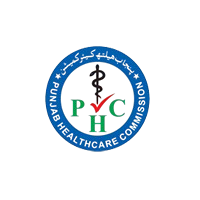
Wisdom teeth are the third set of molars that typically develop during the late teenage years or early adulthood. If they are impacted, infected, or causing damage to the surrounding teeth, they may need to be extracted.
Removing a wisdom tooth may seem daunting, but the procedure is completely pain-free and performed with expert precision. As we age, our teeth continue to change—including the emergence of wisdom teeth.
Wisdom teeth, or third molars, typically appear between the ages of 17 and 21. While they can aid in chewing, they often cause discomfort or become impacted, leading to pain and potential complications. If you experience persistent pain, it may be time to visit a dentist for evaluation.
At DentX Dental Clinic, our specialist dentists and oral surgeons are highly trained in surgical wisdom tooth extractions, ensuring a safe, precise, and painless procedure. We prioritize your comfort and well-being, making the experience as smooth and stress-free as possible.

Most frequently asked questions
Even if your wisdom teeth are healthy, removing them as a preventive measure can help avoid future complications. Their growth may put pressure on adjacent teeth, increasing the risk of misalignment or other dental issues—even if no pain is present.
Another key reason for early removal is that as we age, the bones in our mouth become denser, making extraction more complex. Removing wisdom teeth at a younger age often results in a smoother procedure and faster healing.
If you notice your wisdom teeth emerging, it’s best to consult a specialist dentist as soon as possible. Early evaluation allows for proactive dental recommendations and helps prevent potential problems before they arise.
Whether you want to have all your teeth extracted in one appointment is your personal choice. Many patients prefer to extract all their wisdom teeth at once to avoid multiple anesthetic administrations. However, extracting multiple teeth takes longer to recover than a single-tooth extraction.
Preparing for your wisdom teeth procedure is an important step in ensuring a successful and comfortable experience. Here are some things you can do to prepare:
Firstly, plan your schedule ahead of time. Make sure you have enough rest and avoid any kind of stress before the procedure.
Secondly, before the actual wisdom teeth removal, your oral surgeon will speak with you about the procedure and ask about the condition of your tooth/teeth, your health history, existing medications or food supplements, the type of anesthesia that will be applied, and your personal feeling about the procedure. Be sure to discuss any concerns or questions you may have with your dentist during this time.
Lastly, make sure to follow any pre-operative instructions given to you by your dentist. These may include fasting for a certain period of time before the procedure, avoiding smoking, or refraining from certain medications.
By following these steps, you can help ensure that you are well-prepared and comfortable during your wisdom teeth procedure.
After wisdom tooth removal, your recovery will depend on the type of anesthesia used. If you received local anesthesia, you can resume normal activities right away. However, if you had general anesthesia or IV sedation, you’ll need someone to drive you home.
Mild swelling and discomfort are normal for a few days, while complete healing may take several weeks.
To ensure a smooth recovery, follow your dentist’s aftercare instructions, avoid smoking and drinking through a straw, stick to soft foods, and keep the extraction site clean to prevent infection.
After wisdom tooth extraction, it’s important to take good care of your mouth as it heals. Here are some tips to follow:


We are registered clinic with PHC
Provisional License Number is : PL-86151
Registration Number is : R-86151
info@thedentxclinic.com
+92-300-1750502
346-K2, Chashma Rd, Wapda Town Phase 1, Lahore